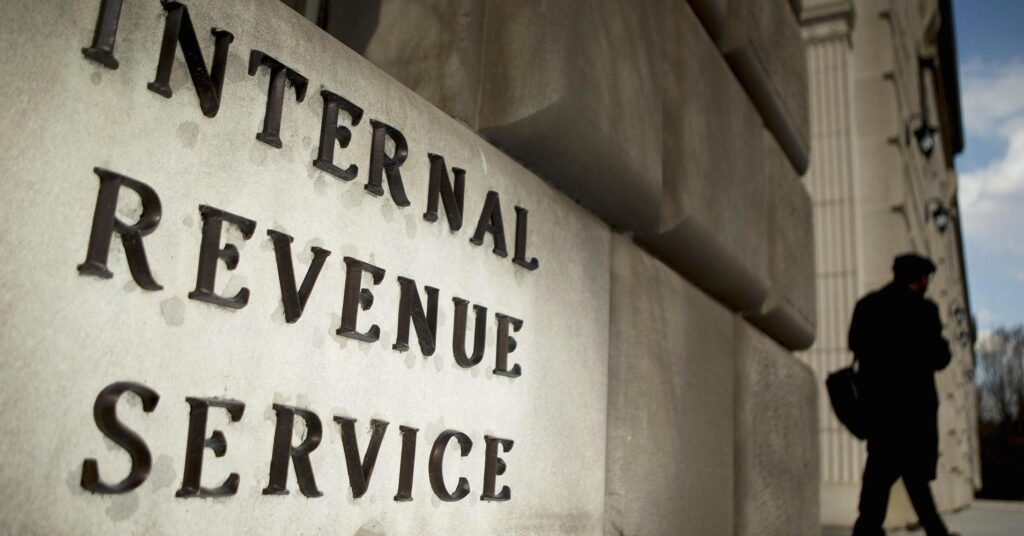Bitcoin neared six-week lows on June 21, as traders cautioned that buyers were still absent.
Data from Cointelegraph Markets Pro and TradingView showed BTC/USD reaching $63,356 on Bitstamp, indicating another challenging day for Bitcoin’s price.
The cryptocurrency has declined 3.7% week-to-date and 5.75% in June overall, struggling to maintain the $64,000 level.
Skew, a popular trader, noted that although some buying interest was emerging at lower prices, consistent buying was necessary for a broader recovery.
“Potential LTF absorption going on here,” he updated on X. “A lot of shorting by looks of it & spot selling into price around the lows. Need to see buyers push for control to get a bounce.”
Skew also expressed concern about the “lack of real market participation,” attributing price movements to automated trading algorithms.
Roman, another trader, pointed out that Bitcoin seemed to be targeting $60,000 again as it was losing ground at $64,500.
He noted bullish divergences in the RSI and MACD indicators on four-hour timeframes, suggesting a potential rebound.
“Looks like price wants 60k once again as 1D is currently losing 64.5k.
“H4 has bull divs all over RSI/MACD so subject to change,” he wrote.
READ MORE: Federal Judge Advances Securities Lawsuit Against Ripple Labs, Rejects Summary Judgment Bid
Jelle, another trader, commented on Bitcoin’s RSI staying above 30 despite the price drop, calling it “interesting behavior.”
“Bitcoin failed to reclaim the range lows, and continues to bleed lower — while the RSI stays above the 30 level,” he added.
Bitcoin’s latest decline brought it to a critical bull market trendline, the short-term holder cost basis (STHCB), also known as realized price.
At $64,000, this level had provided support since the end of the 2022 bear market. Cointelegraph reported the significance of this event, with On-Chain College stating, “time for Bitcoin to battle.”
He observed, “A nice breakout above the STHCB now, with price at $64.2k and the STHCB at $64k. Let’s see how it interacts at this level throughout the day.”
Keith Alan, co-founder of Material Indicators, highlighted the 21-week simple moving average (SMA) at $63,074 as another critical point.
In his latest video update on X, he warned that order book liquidity was “relatively low” around this area.
To submit a crypto press release (PR), send an email to sales@cryptointelligence.co.uk.
The Blockchain Association is once again opposing the Internal Revenue Service’s (IRS) proposed broker-dealer rules, highlighting the excessive burden these rules would impose on investors, cryptocurrency companies, and the IRS itself.
In a letter, the advocacy group referenced the Paperwork Reduction Act, which mandates that government regulators should not impose unnecessary and complex paperwork requirements on those in the financial system.
The Blockchain Association’s spokespeople argued that implementing these proposed rules would result in 8 billion 1099-DA tax forms needing processing, wasting 4 billion hours of labor, and incurring an annual compliance cost of $254 billion.
The letter presented figures showing that these compliance costs and labor burdens starkly contrast with earlier IRS estimates, it was reported.
The IRS had projected the new regulations would require 0.15 hours per customer to complete, totaling a compliance cost of $136,350,000.
Furthermore, the Blockchain Association argued that annual compliance costs of $245 billion were entirely unreasonable for an asset class and markets that generate a tax gap of at most $10 billion.
In 2023, the Blockchain Association sent a 39-page letter to the IRS, detailing their comprehensive objections to the proposed broker regulations.
The advocacy group described the IRS’s proposed broker reporting rule as government overreach, noting that certain entities within the blockchain ecosystem, such as decentralized finance protocols, would struggle to comply with these rules.
The letter emphasized “fundamental misunderstandings” about cryptocurrencies, digital assets, and decentralized finance among U.S. government officials, who find it challenging to grasp the paradigm shift introduced by blockchain technology.
The proposed tax rules and reporting criteria from the IRS have sparked a significant backlash from the crypto community.
Many individuals and institutions have expressed their disapproval of the requirements, deeming them out-of-touch.
Jerry Brito, executive director at Coin Center, echoed the objections raised in the Blockchain Association’s letter.
He pointed out the logistical difficulties of imposing these reporting requirements on decentralized networks and their participants, further underscoring the impracticality of the proposed rules.
To submit a crypto press release (PR), send an email to sales@cryptointelligence.co.uk.
An Australian man has been sentenced to two years in prison for cyber-enabled identity theft, including using fake documents to create online cryptocurrency accounts.
On June 21, the Australian Federal Police (AFP) announced that a 31-year-old man was sentenced at the Melbourne County Court.
The man was charged after an international investigation into a website selling technology for fraud, linked to over 1 million Australian dollars ($670,000) theft from victims, according to reports.
The AFP began Operation Stonefish in August 2022 after UK authorities investigated a website offering spoofing services for as little as 20 British pounds. This site facilitated identity theft and financial fraud.
A complaint to Report Cyber, an Australian Commonwealth Government site for cybercrime reporting, came from a victim in New South Wales about an unauthorized bank account creation.
AFP investigations revealed that the man used fake driver’s licenses with real victims’ details and his own photo to open accounts on two cryptocurrency exchanges.
READ MORE: Bitcoin Miner Reserves Plunge to 14-Year Low Amid Halving Pressures and Strategic Adjustments
In November 2022, AFP officers executed a search warrant at the man’s home in Boronia.
They seized blank and fake driver’s licenses, a lost passport, and various cards in other people’s names.
Authorities also found an encrypted messaging platform on the man’s computer, containing discussions about identity-based crime and manuals on creating false documents. The man refused to provide access codes to his devices during the search.
Detective Superintendent Tim Stainton highlighted the serious impact of identity theft, stating, “The theft of someone’s identity can have serious implications for victims and is a serious criminal offense punishable by significant time in prison.”
He added, “A stolen identity and the use of associated fraudulent documentation can have a devastating impact on people’s lives if sold online or used for criminal purposes.”
The Australian man was convicted of several charges under the Anti-Money Laundering and Counter-Terrorism Financing Act 2006 and the Criminal Code, including providing false information, dealing with proceeds of crime, producing and possessing false documents, and failing to comply with a court order.
He was sentenced to two years imprisonment, with a 10-month non-parole period.
Authorities emphasized that this case underscores the serious consequences of cyber-enabled identity theft and the importance of international cooperation in combating such crimes.
To submit a crypto press release (PR), send an email to sales@cryptointelligence.co.uk.
Rising operational costs and lower rewards are impacting Bitcoin miners, though it’s not at a catastrophic level, according to cryptocurrency analyst James Check.
“We are in a period of hash ribbon inversion, and blocks are coming in about 14 seconds slower than they should do.
“That tells you that there is less hashrate online, blocks are being found slightly slower,” said Check, also known as “Checkmatey,” in a June 21 X video.
“About 5% of mining hashrate is struggling at the moment,” Check explained, referring to the processing and computing power given to the network through mining.
“Check claims that while 5% isn’t enormous, Bitcoin miners are likely distributing some of their holdings, but it doesn’t appear to be a “complete and total firesale.”
A hash ribbon inversion happens when the 30-day moving average of the hashrate falls below the 60-day moving average, indicating a period of mining difficulty.
This can result from increased operational costs, a decline in Bitcoin’s price, or equipment issues among miners.
After the Bitcoin halving on April 20, the hash rate began to decline as mining firms turned off unprofitable rigs.
The halving event, occurring every four years, cuts miners’ rewards in half. The April 20 halving reduced mining rewards to 3.125 BTC from 6.25 BTC.
As of the article’s publication, the Bitcoin network’s hashrate stands at 586 exahashes per second (EH/s), down 2% over the past 30 days, according to Blockchain.com data.
Check suggested that miners might be just breaking even, mining new Bitcoins to cover operational costs.
READ MORE: 3iQ Seeks Approval for North America’s First Solana ETP on Toronto Stock Exchange
“Miners might be treading water up here, they may not be full-scale bear market level capitulating, probably just treading water, they mine 10 Bitcoin, they sell 10 Bitcoin,” Check said, echoing other analysts’ comments on the profitability challenges for Bitcoin miners.
“Bitcoin miners are selling most of their coins to pay the bills,” Panos wrote in a June 18 X post.
In a separate post on X the same day, Check noted that Bitcoin “transaction fees represent an increasingly large proportion of miner revenues.”
“Miners must adapt and adjust to fees becoming their primary revenue stream, forcing the industry to further innovate, and apply efficient capital management,” he wrote.
“Nearly all Bitcoin miners are selling 100% of their coins, while CLSK is managing to Hodl their BTC & use their relatively USD balance sheet to acquire new capacity,” VanEck head of digital assets research Matthew Sigel wrote.
To submit a crypto press release (PR), send an email to sales@cryptointelligence.co.uk.
Apple has decided to delay the release of Apple Intelligence, iPhone Mirroring, and SharePlay Screen Sharing in the European Union due to concerns about the regulations in the Digital Markets Act (DMA), according to multiple reports.
Apple Intelligence is the company’s new artificial intelligence upgrade.
An Apple spokesman told CNBC that “Apple Intelligence is a collection of ‘highly capable’ large language and ‘diffusion models,’ as well as an ‘on-device semantic index’ that worked across apps to identify data and feed it to models.”
This upgrade impacts the Siri voice assistant and other functions, as London Insider reported on Saturday.
iPhone Mirroring allows users to see and control their iPhones from their Macs, while SharePlay Screen Sharing lets FaceTime users control others’ devices during conversations.
Fred Sainz, Apple’s senior director of corporate communications, explained to The Verge, “We are concerned that the interoperability requirements of the DMA could force us to compromise the integrity of our products in ways that risk user privacy and data security.”
Apple is one of six companies the EU has labeled as “gatekeepers” due to their significant market power.
The other gatekeepers are Alphabet, Amazon, ByteDance, Meta, and Microsoft.
READ MORE: LayerZero’s New Token Launch Sparks Controversy Over Donation Requirement, Drops 17% in Value
These companies manage 22 “core platform services,” according to EU lawmakers.
The Digital Markets Act, effective since May 2023, imposes specific rules on gatekeepers.
The DMA rules include requirements on interactions with third parties, user control over their data, and business rights to verify advertising on their platforms.
Violating these rules can lead to penalties of up to 10% of a company’s global annual turnover, or up to 20% for repeated offenses, along with other potential remedies.
Apple is already under investigation for its business practices in the EU.
The European Union comprises 27 member states and has a population of 448.4 million.
Cointelegraph reached out to the Apple press department and Sainz for further confirmation and information but did not receive an immediate response.
To submit a crypto press release (PR), send an email to sales@cryptointelligence.co.uk.
LayerZero’s newly launched token, LayerZero (ZRO), has fallen 17% since its debut, amid controversy over its donation criterion for claiming tokens, which some critics liken to a “tax.”
However, others believe this mechanism could address issues seen in recent token airdrops.
Upon its launch on June 20, ZRO spiked 15.15% to $4.71 within 20 minutes before plunging 22% in two hours, a common pattern in token airdrops as recipients quickly sell off their tokens.
ZRO’s launch included a unique twist: users must donate a small amount per ZRO token to claim them.
“To claim ZRO, users must donate $0.10 in USDC, USDT, or native ETH per ZRO.
This small donation goes directly to the Protocol Guild,”
LayerZero stated in a June 20 X post. LayerZero predicted this would result in around $18.5 million for the Protocol Guild, which funds Ethereum developers.
The donation requirement sparked backlash, with critics arguing it transformed the airdrop into something akin to an initial coin offering (ICO).
Responses to LayerZero’s announcement included comments like “Is this a joke?” and “how about you pay for that.”
LayerZero insists the ZRO launch is “not an airdrop.” In a June 20 statement, the company argued that traditional airdrops no longer achieve their goals of equitable distribution, community building, and protocol health.
This is due to recipients often having “little to no interest” in the project’s long-term success, alongside an increase in airdrop farming and Sybil attacks, where entities create numerous wallets to exploit airdrops.
LayerZero co-founder Bryan Pellegrino defended the launch, emphasizing that no one is entitled to the tokens and advising those unwilling to donate not to claim them.
“There is no forced donation; if you don’t want to donate… simply don’t claim.
“This is not something you own, it’s something being offered,” he said.
Pellegrino expressed his exhaustion after a busy day defending the launch, stating, “Such an unreal day, as exhausted as I’ve ever been in my entire life.
“Going to sleep for an unknown amount of time with notifications off.
“Godspeed all.”
Some in the crypto community support the donation mechanism.
Adam Cochran stated, “People whining about the donation on LayerZero airdrop are dumb,” arguing it supports a “greater ecosystem” and adds a base cost, deterring Sybil attacks.
ZkSync noted that despite using an explicit Sybil detection system during its June 17 airdrop, some Sybil wallets still bypassed the system.
Connor King, an Irys developer, praised the claim page’s user interface, comparing it to Spotify Wrapped.
ZRO is currently trading at $3.35, down 17% over the last 24 hours, according to CoinMarketCap.
To submit a crypto press release (PR), send an email to sales@cryptointelligence.co.uk.
A U.S. federal court judge has advanced a civil securities lawsuit against Ripple Labs, rejecting its bid for summary judgment.
This lawsuit claims that Ripple’s CEO violated California securities laws.
On June 20, Judge Phyllis Hamilton of the U.S. District Court for the Northern District of California ruled that a jury will decide if Ripple CEO Brad Garlinghouse made “misleading statements” during a 2017 interview.
The judge dismissed four allegations regarding Ripple’s “failure to register XRP as a security.”
In the 2017 interview on Canada’s BNN Bloomberg, Garlinghouse stated he was “very, very long” on XRP. However, the lawsuit alleges this was misleading, as he “sold millions of XRP” throughout that year.
“We are pleased that the California court dismissed all class action claims. The one individual state law claim that survived will be dealt with at trial,” said Ripple’s chief legal officer, Stu Alderoty, in an emailed statement to Cointelegraph.
Judge Hamilton noted that Ripple argued the “misleading statement” claim should be dismissed, asserting XRP is not a security under the Howey test.
Ripple referenced a significant July 2023 ruling by Judge Analisa Torres in a lawsuit between the U.S. Securities and Exchange Commission (SEC) and Ripple.
However, Hamilton disagreed, finding that XRP could be considered a security when sold to non-institutional investors, who might expect profits from Ripple’s efforts—one of the criteria of the Howey test.
READ MORE: Bitcoin Miner Reserves Plunge to 14-Year Low Amid Halving Pressures and Strategic Adjustments
“The court declines to find as a matter of law that a reasonable investor would have derived any expectation of profit from general cryptocurrency market trends, as opposed to Ripple’s efforts to facilitate XRP’s use in cross-border payments, among other things.
Accordingly, the [court] cannot find as a matter of law that Ripple’s conduct would not have led a reasonable investor to have an expectation of profit due to the efforts of others,” Hamilton wrote.
Ripple’s Alderoty emphasized, “The ruling from Judge Torres in the SEC case still stands and nothing here disturbs that decision.”
Many in the U.S. crypto industry celebrated Torres’ ruling as a major victory in 2023, anticipating that it would set a precedent for other crypto cases.
However, its impact has been less significant than expected.
In the SEC’s case against Terraform Labs, Judge Jed Rakoff, from the same courthouse as Torres, disagreed with the Ripple ruling, rejecting Terraform’s dismissal motion in August.
Terraform subsequently lost the case and had to pay a $4.5 billion settlement to the SEC.
To submit a crypto press release (PR), send an email to sales@cryptointelligence.co.uk.
Digital asset manager 3iQ has filed for a Solana exchange-traded product (ETP) listing on Canada’s Toronto Stock Exchange (TSE), which, if approved, would be a first in North America, according to the company.
“We have submitted a preliminary prospectus for The Solana Fund (QSOL) in Canada in relation to an initial public offering,” 3iQ announced on X on June 20.
If approved, it would be the first Solana ETP listed in North America, the firm emphasized.
The preliminary prospectus for QSOL has been filed with securities regulatory authorities in all Canadian provinces and territories, excluding Quebec, 3iQ stated.
QSOL aims to provide “exposure to the digital currency SOL” and track the “daily price movements of the U.S. dollar price SOL.”
Additionally, holders of 3iQ’s Solana ETP might earn interest from native SOL staking yields, which the firm estimates to be around 6-8%.
Coinbase Custody and Tetra Trust will serve as custodians, with Coinbase Custody providing exclusive institutional staking infrastructure for the Solana fund.
3iQ’s key cryptocurrency products on the TSE include the 3iQ Bitcoin ETF (BTCQ) and 3iQ Ether Staking ETF (ETHQ), which have approximately $233 million and $38.7 million in net assets, respectively, according to Yahoo Finance data.
The firm also offers The Bitcoin Fund (QBTC) and The Ether Fund (QETH).
Canadian securities regulators approved the world’s first spot Bitcoin ETFs, which launched in February 2021, followed by spot Ether products two months later.
“Canada had spot Bitcoin and spot Ethereum ETFs before the US even got futures ETFs for either asset,” noted Bloomberg ETF analyst James Seyffart.
While firms like Franklin Templeton and other U.S. asset managers have praised the Solana network, none have announced plans to pursue a spot Solana ETF in the U.S.
Globally, more than $1 billion worth of Solana ETPs are already available, including the 21Shares Solana Staking ETP and the ETC Group Physical Solana product in Europe, as highlighted by Seyffart.
To submit a crypto press release (PR), send an email to sales@cryptointelligence.co.uk.
Lawyers representing Kraken and the United States Securities and Exchange Commission (SEC) argued in a federal court about whether digital assets on the Kraken exchange could be considered securities.
At a June 20 hearing in the U.S. District Court for the Northern District of California, Kraken’s lawyer Matthew Solomon and SEC counsel Peter Moores presented their cases before Judge William Orrick.
The hearing focused on a motion to dismiss filed by Kraken in February.
Judge Orrick indicated he was “inclined to deny” the motion, suggesting it was “plausible” that digital assets were offered and sold as investment contracts on Kraken.
Solomon argued that Kraken’s case differed significantly from other litigated cases, such as those involving the SEC and Terraform Labs and Telegram.
He referenced Judge Analisa Torres’ decision in the SEC’s case against Ripple Labs, where the judge ruled the token was a security when sold to institutional investors, but noted the closest comparable case to Kraken’s was Coinbase’s.
The SEC’s argument hinged on treating Kraken as an “ecosystem” where tokens are sold as investment contracts, making them securities under the Howey test. Kraken’s legal team disputed these theories.
“I think conjuring up the notion of an ecosystem just for crypto — that’s not the way rules oughta be applied,” said Solomon.
“Crypto deserves no better than anybody else, but they oughta have the rules applied equally to them as they’ve applied to everyone else.”
Solomon added, “The SEC doesn’t just have to show that there is a security under Howey, they’ve gotta show that that security was brokered, traded, or cleared on Kraken.
That is impossible the way they’ve constructed their argument.”
Judge Orrick did not rule on the motion to dismiss during the hearing but indicated he was still inclined to deny it.
READ MORE: Shkreli Claims Barron Trump Launched $146M TrumpCoin with Father’s Approval
He suggested that a year should be sufficient for discovery if the case proceeds.
The SEC filed its enforcement action against Kraken in November 2023. Prior to this, Kraken settled with the SEC in February 2023, agreeing to pay $30 million and cease offering staking services or programs to U.S. clients.
Although Ether was not specifically mentioned in the SEC v. Kraken case, it has been central in some crypto firms’ legal battles with the SEC.
In April, Consensys filed a lawsuit against the SEC after receiving a Wells notice regarding potential enforcement action based on Ether.
However, the SEC concluded its investigation on June 19, suggesting it considered Ether a commodity.
To submit a crypto press release (PR), send an email to sales@cryptointelligence.co.uk.
Digital asset manager Bitwise launched its first spot Ether exchange-traded fund (ETF) commercial on Thursday, inviting non-fungible token (NFT) enthusiasts to mint the 39-second clip on Ethereum.
“Capture a piece of crypto history: the 1st national TV spot minted as an NFT,” Bitwise announced in a June 20 post on X.
The ad is themed around Ethereum’s constant availability, contrasting it with “big finance,” which operates on traditional hours. It draws inspiration from an early 2000s Apple ad comparing Mac computers to PCs.
The commercial features a conversation between a casually dressed, younger man representing Ethereum and an older man in business attire and a nightgown representing “Big Finance.”
The older man is preparing for bed as the trading day ends.
“You’d want a little shut-eye too if you’ve been moving billions around the world,” boasts Big Finance.
“Well, actually, I do,” replies the Ethereum man.
“Stablecoins, NFTs, loans, people can access me 24/7 […], but look, everyone’s different. You should get some rest,” he adds, tucking Big Finance into bed.
Bitwise described the ad as a “piece of history.”
READ MORE: Police Officer Saves Elderly Woman from Losing $40,000 in Bitcoin Scam
So far, 1,198 mints of the 39-second clip have been made by 530 unique minters, according to the Zora Network, an Ethereum layer-2 solution for artists and brands.
Bitwise announced that 50% of the NFT proceeds will support Protocol Guild, a funding mechanism created by Ethereum core contributors.
The remaining 50% will go to the ad’s actors, Jamie Kaler and Michael Tacconi.
Protocol Guild, Kaler, and Tacconi have collectively earned $1,865 or 0.53 Ether from the NFT mint so far.
Last month, Bitwise and seven other firms had their applications approved by the United States Securities and Exchange Commission (SEC) to list spot Ether ETFs.
Bitwise amended its S-1 registration statement on June 18 to include a potential $100 million investment into the Bitwise Ethereum ETF upon its launch.
S-1s are the final filings that must be approved by the SEC before these products can launch. According to Bloomberg ETF analyst Eric Balchunas, they may launch as early as July 2.
VanEck also released its spot Ether ETF ad shortly after the SEC’s approval of the 19b-4 filings.
To submit a crypto press release (PR), send an email to sales@cryptointelligence.co.uk.












